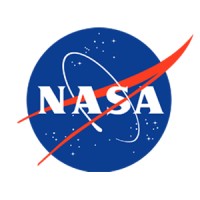
Charity Woodrum
PHD Candidate at University of Arizona- Claim this Profile
Click to upgrade to our gold package
for the full feature experience.
Topline Score


Bio


Experience
-
-
PHD Candidate
-
Aug 2018 - Present
Astronomy & Astrophysics Astronomy & Astrophysics
-
-
-
-
Graduate Research Fellow
-
Aug 2018 - Present
-
-
-
University of Oregon
-
United States
-
Higher Education
-
700 & Above Employee
-
Fishergroup Lead Student Researcher
-
Mar 2015 - Jun 2018
-
-
Physics Demonstration Room Assistant
-
Apr 2015 - Jun 2016
-
-
Undergraduate Teaching Assistant
-
Jun 2015 - Sep 2015
-
-
-
-
Tour guide of the night sky and Telescope Operator
-
May 2014 - Jun 2018
-
-
-
NASA - National Aeronautics and Space Administration
-
United States
-
Aviation and Aerospace Component Manufacturing
-
700 & Above Employee
-
Undergraduate Research Fellow
-
Aug 2016 - Aug 2017
-
-
Research Intern
-
Jun 2016 - Aug 2016
About one hundred years after Einstein's general theory of relativity, the existence of gravitational waves was confirmed experimentally by the Laser Interferometer Gravitational-Wave Observatory (LIGO). The merger of compact binaries such as neutron star - black hole systems or neutron star - neutron star systems are expected to produce burst-like electromagnetic signals in addition to gravitational waves. The Fermi Gamma-ray Space Telescope's Gamma-ray Burst Monitor (GBM) is continuously surveying the sky looking for the electromagnetic signals produced in these types of events. In addition to the on-board trigger system that alerts the astronomical community when a gamma-ray burst event has been detected, the GBM team is also developing a search algorithm to comb the data for possible gamma-ray bursts that did not trigger the on-board system. I analyzed the resulting events from this untriggered search to optimize the search algorithm by categorizing successful search parameters and evaluating timing and spectral information to distinguish gamma-ray burst events from known Galactic transients. Show less
-
-
-
-
Science Educator
-
Jul 2015 - Sep 2015
-
-
Education
-
2018 - 2024

University of Arizona
Doctor of Philosophy - PhD, Astronomy and Astrophysics -
2018 - 2021

University of Arizona
Master of Science - MS, Astronomy and Astrophysics -
2014 - 2018

University of Oregon
Bachelor of Science - BS, Physics -
2006 - 2009

Umpqua Community College
Associate of Applied Science, Registered Nursing/Registered Nurse
Community







